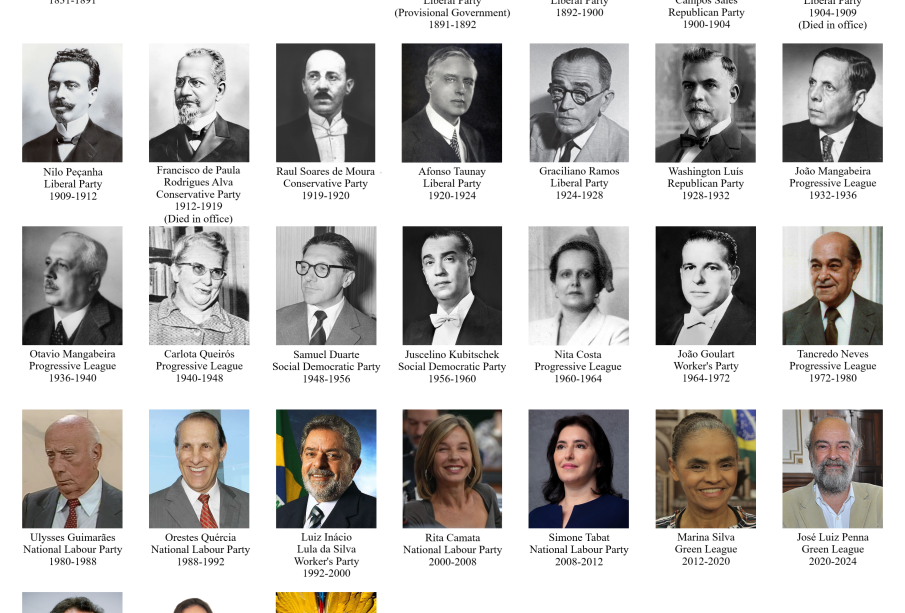An Overview of Brazil’s Presidents Through History

The Importance of Leadership in Brazil
The role of the president in Brazil is pivotal, shaping not only the political landscape but also influencing the socio-economic development of the nation. Understanding the various presidents of Brazil provides insight into its rich history and the evolution of democracy in the country.
Founding and Early Leadership
Brazil’s political history officially began with the establishment of the Republic in 1889, led by its first president, Marechal Deodoro da Fonseca. He played a crucial role in overthrowing the monarchy and declaring Brazil a republic. However, his presidency was marked by political instability, leading to his resignation in 1891.
Significant Figures in Brazilian Politics
Throughout the 20th century, several presidents stood out for their contributions. Getúlio Vargas, who served multiple terms during the 1930s and 1940s, implemented social reforms that would shape Brazil’s modern labour laws. His tenure was noted for both authoritarianism and groundbreaking policies in education and industrialisation.
Juscelino Kubitschek, who served from 1956 to 1961, is renowned for promoting rapid economic growth and the construction of Brasília, the country’s modern capital. His motto “fifty years in five” illustrated his ambitious vision for the nation.
The Military Dictatorship Era
The period from 1964 to 1985 was marked by military dictatorship, which saw presidents like Humberto Castelo Branco and Ernesto Geisel implementing restrictive policies, stifling political dissent and curtailing civil liberties. This era remains controversial in Brazilian history, influencing political discourse to this day.
Return to Democracy and Modern Leadership
With the return to democracy in the late 1980s, Brazil saw a new wave of presidents, including Fernando Collor de Mello, who was impeached for corruption—a precursor to the political scandals that have plagued the nation in subsequent years. More recently, Dilma Rousseff became the first female president of Brazil in 2011, before being impeached in 2016, reflecting ongoing challenges in governance and accountability.
Current Political Landscape
As of October 2023, Lula da Silva has returned to the presidency, having won the 2022 elections. His administration is currently navigating numerous socio-economic issues, from inflation to social inequality, and aims to re-establish Brazil’s position on the global stage.
Conclusion
The presidents of Brazil have played essential roles in shaping the nation’s trajectory through periods of triumph and crisis. Their varied legacies offer valuable lessons for current and future leaders. As Brazil continues to evolve, understanding the impact of its past presidents will be essential for all Brazilians and international observers keen to grasp the complexities of its democracy.









